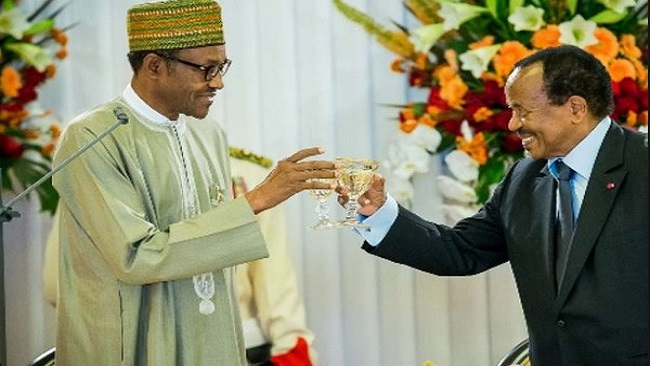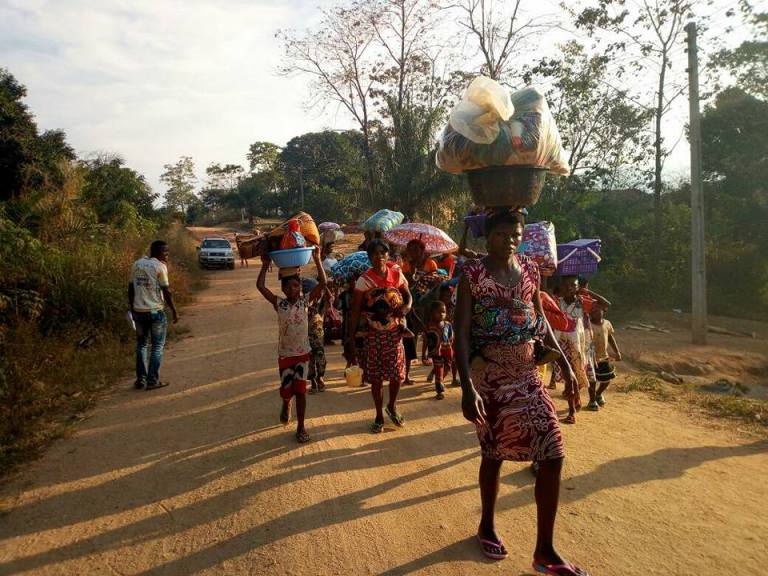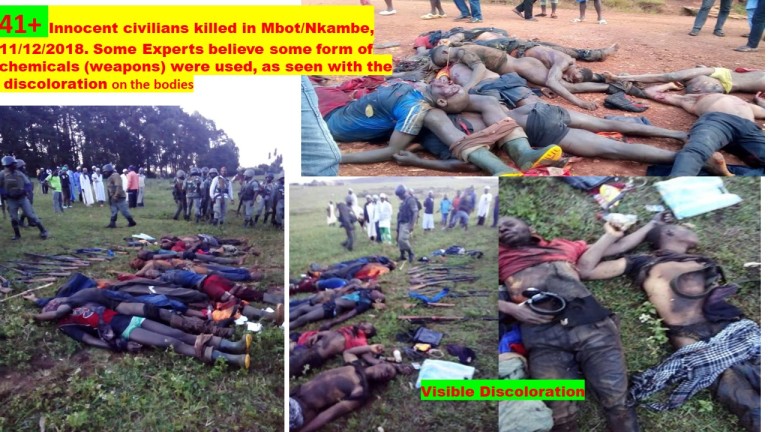Sone Peter
Last March 1st, 2019, the Federal Court in Abuja, Nigeria ruled that the Buhari Administration violated a litany of both national and international laws when it refouled leaders of British Southern Cameroons (Ambazonia), including its President, Mr. Ayuk Tabe and 47 other citizens who were running persecution back to Cameroun. The verdict which is a further embarrassment to the Buhari government that has remained mute since the refoulement in January 2018, forced the government for the first time to speak. In a BBC interview following the verdict, the Attorney General of Nigeria, Mr. Abubakar Malami, said they were looking at the verdict and will respond appropriately, including repeal. Mr. Malami repeatedly failed in the interview to explain under which treaty were the refugees forcefully sent back to Cameroun. Nigeria and Cameroun are still to have a formal extradition treaty, talk less of a refoulement agreement. Both countries are equally signatories to the “Non-Refoulement Obligations under International Law relating to International Refugee Law and Treaties. The 1951 Convention Relating to the Status of Refugees and its 1967 Protocol, binding on all States Parties, provides:
“No Contracting State shall expel or return (“refouler”) a refugee in any manner whatsoever to the frontiers of territories where his [or her] life or freedom would be threatened on account of his [or her] race, religion, nationality, membership of a particular social group or political opinion.”
The question of which treaty was used to refouled the refugees has continued to dog the Cameroun government with its former Communication Minister Issa Tchirouma, claiming without evidence that the extradition took place within the law. The Abuja verdict makes the said anonymous law by Tchirouma an urgent public pre-occupation. In addition to Buhari and Biya contravening international law, prominent Nigerian Lawyer, Justice Isiaka Abiola Olagunju, states that even if the said refugees had committed any crimes in Nigeria, the due process was never followed. The forceful return of the refugees was a huge embarrassment as well to the United Nations High Commission for Refugees (UNHCR), in Nigeria where most of the men had pending asylum applications. The agency denounced the move and accused Nigeria of breaching international agreements, which the Abuja court confirmed in its March 1, ruling. The court thus charged Nigeria to ensure the refugees’ safe return to Nigeria with compensation.

Since the forceful extradition, the Cameroun administration has not failed to provide abundant evidence of why the men were initially running away from persecution. Apart from being locked up in poorly- ventilated bunkers in undisclosed locations, many reported severe daily torture. Global pressure finally pushed the Biya administration to provide evidence of life after more than six months in such torturous conditions. They were equally re-located to a new prison where family visitation was allowed. Belated court appearances in a military tribunal in the capital Yaoundé finally sealed the Non-Refoulement Law’s violation. The Cameroun government charged them with crimes of sedition, terrorism and injury to the fatherland – crimes punishable with the death penalty.
The Cameroun government has remained tongue-tied as usual with the recent developments in Nigeria. However, an anonymous social media post purported to be from one of the military judges in Yaoundé has inundated social media. The judge in the message claims the Cameroun Government has no legal footing in the case. The Judge equally confessed that dismissing or recusing himself from the case on the merit is suicidal for him and family as President Paul Biya remains the de-factor supreme judge in the country and will not fail to exact a pound of flesh from him and family.
While the case of Ayuk Tabe and his government is the focus for now, the violation of the Anti-refoulement law has continued unabated by the two countries. Several refugees are being secretly sent back to Cameroun from Nigeria, with some narrating ordeals of Cameroun soldiers chasing them right in their refugee camps in Nigerian. Some of them, today called the Calabar 7, were recently repatriated and are being tortured daily in Yaoundé’s overcrowded filthy prisons.

The refouling of the English-Cameroon refugees by the Buhari administration according to many Nigerians averred with the crisis in the British Cameroon is a continuation of Buhari’s disdain for Christians. Many justify the act by citing the protection Buhari, provided to Muslim coup plotters against Biya’s government in Cameroun in 1984, during his military rule. Some of these ministers who sort refuge in Nigeria under Buhari like Issa Tchirouma and Bouba Bello Maigari, are today ministers in Cameroun.

The English-speaking region of Cameroon obtained its autonomy from British-controlled Nigerian in 1953, and was self-governing until 1961, when a poorly-worded UNO plebiscite forcefully merged them into an independent French Cameroun. Persistent Complaints of marginalization and a return to the form of the union in 1961 by the English-speaking section that makes up about 20% of the population, have been ignored. The situation erupted again in late 2016 as a teachers and lawyers’ strike, but has since morphed into an armed conflict, between this former British territory, now called Ambazonia and the French territory or Republic of Cameroun. The central government and its military sent to quell the uprising have been engaged in what he U.S Ambassador to Cameroon calls, “Targeted Killing of Anglophones”. Till date, about 9200 of English-speaking civilians have been killed, with hundreds of villages destroyed by the French-Cameroun soldiers with huge support from France. More than 500,000 people have equally been displaced with an additional 51,000 as refugees in Nigeria. More than 200 villages have also been razed by the French Cameroun soldiers.
One thought on “British Cameroon War of Independence: How Yaoundé Gave Abuja an Easy Verdict”